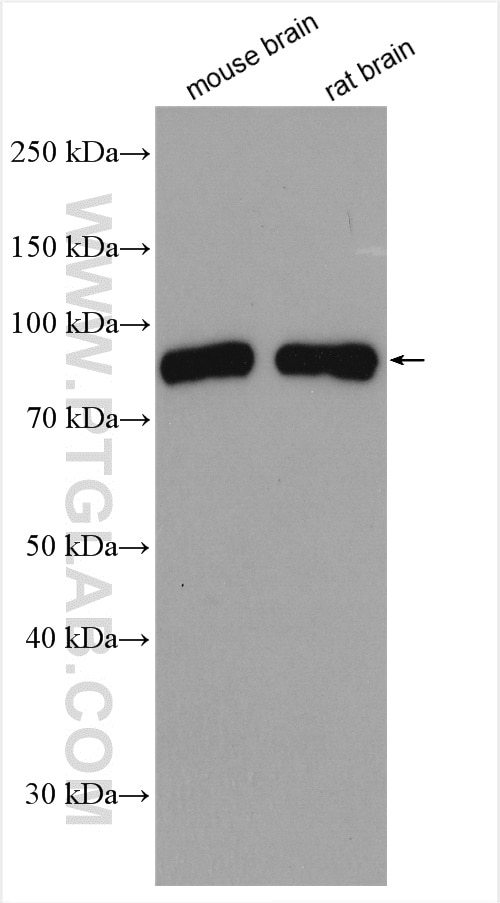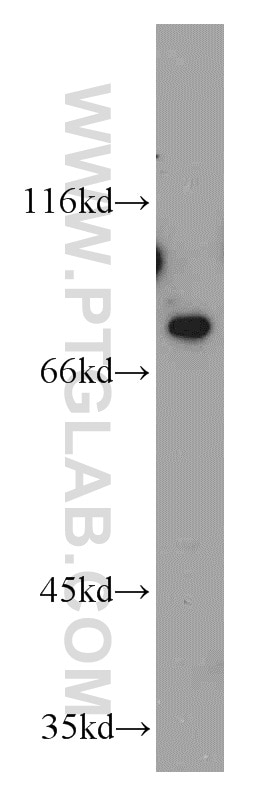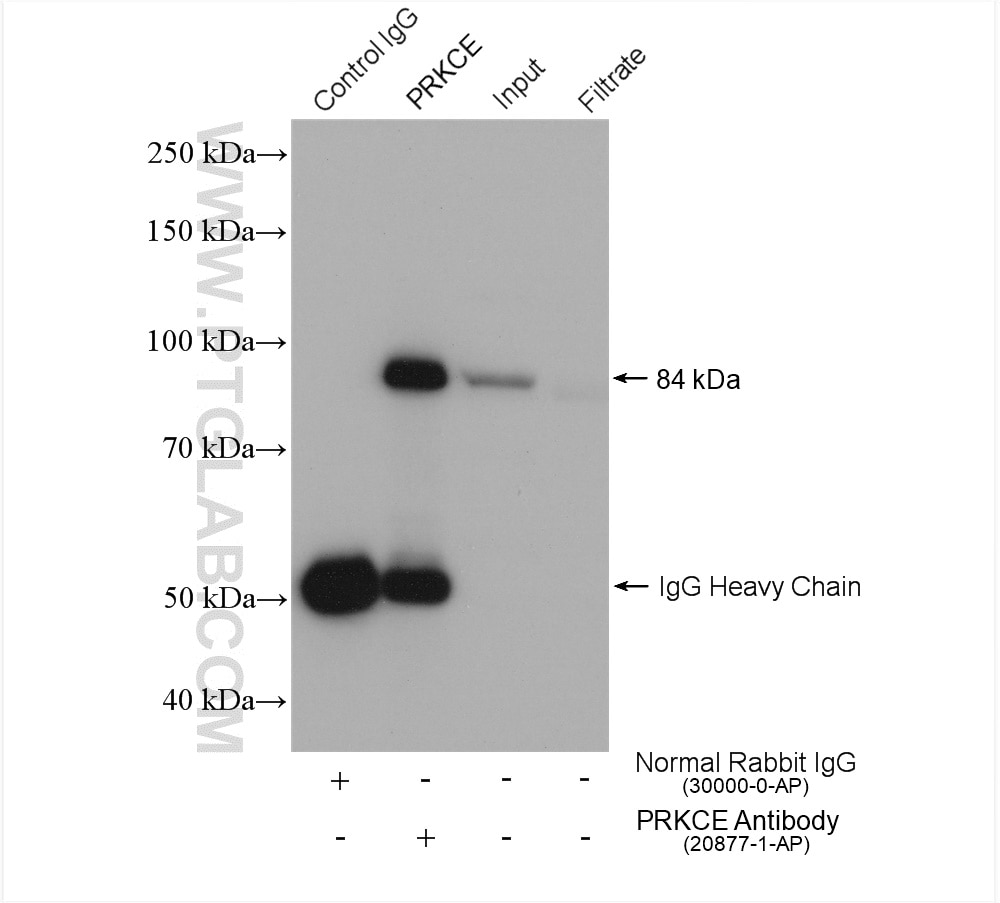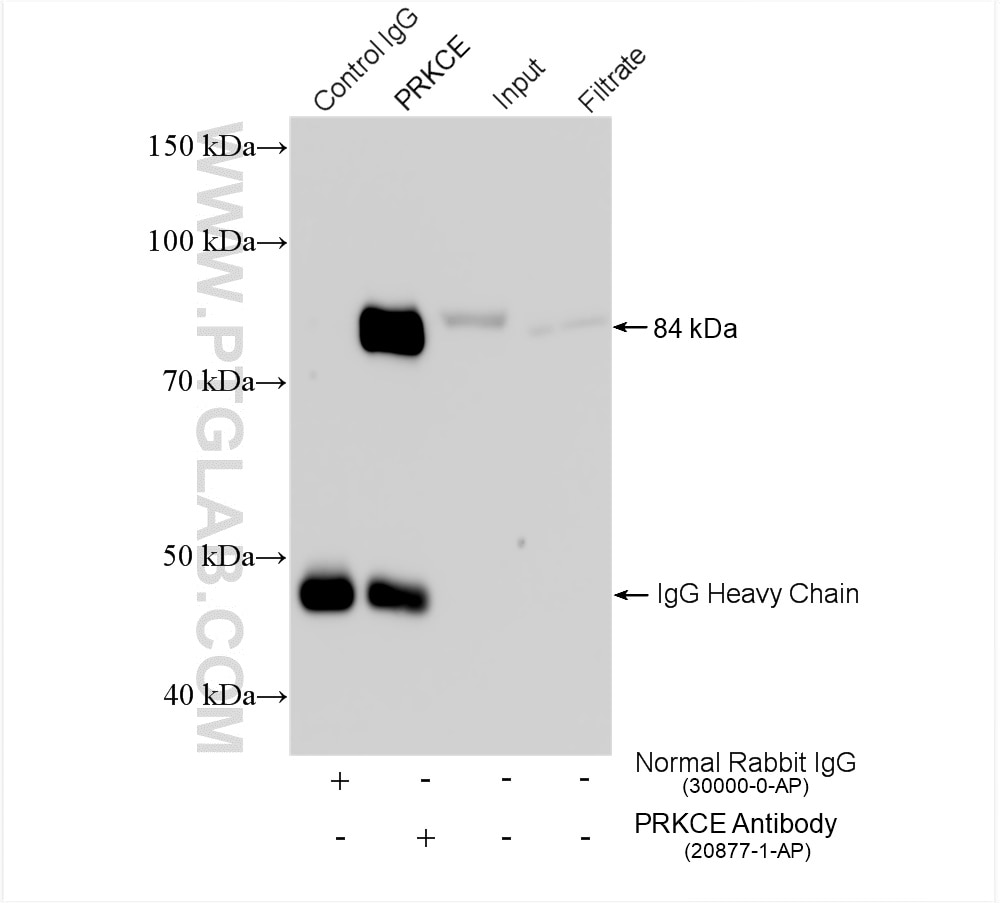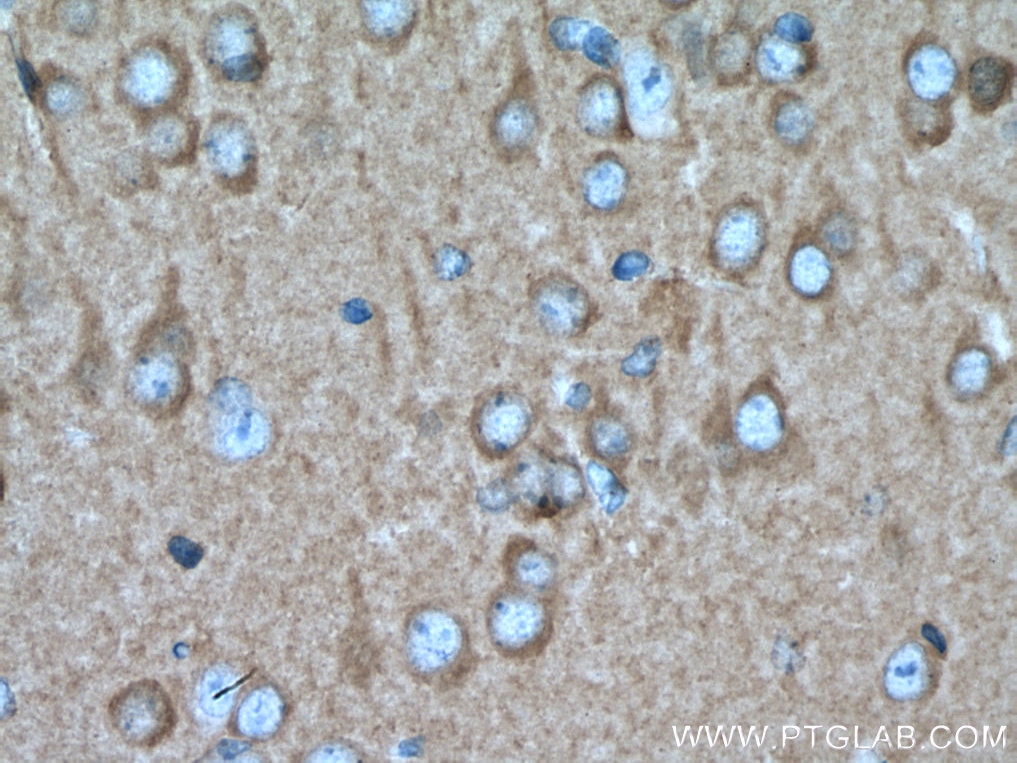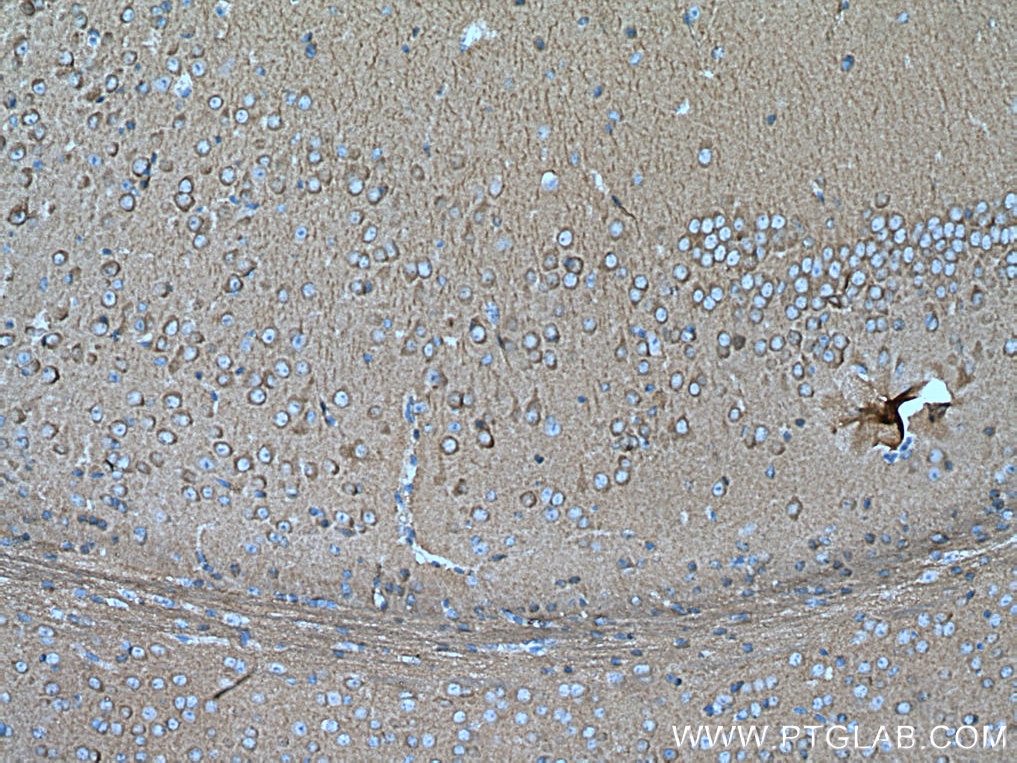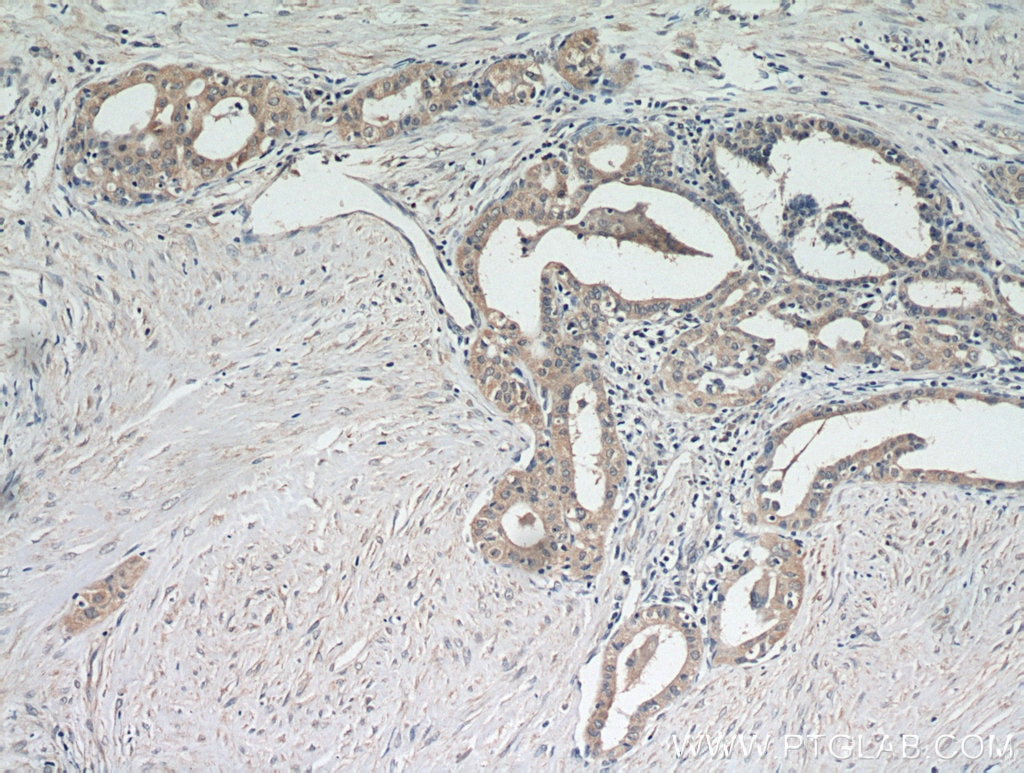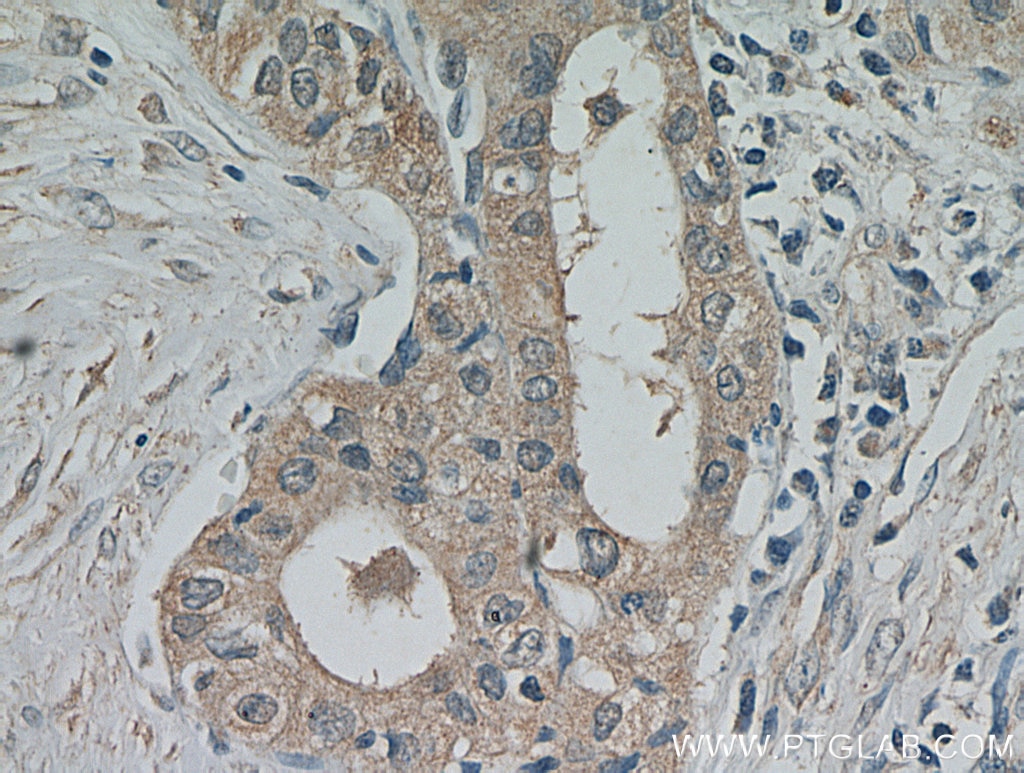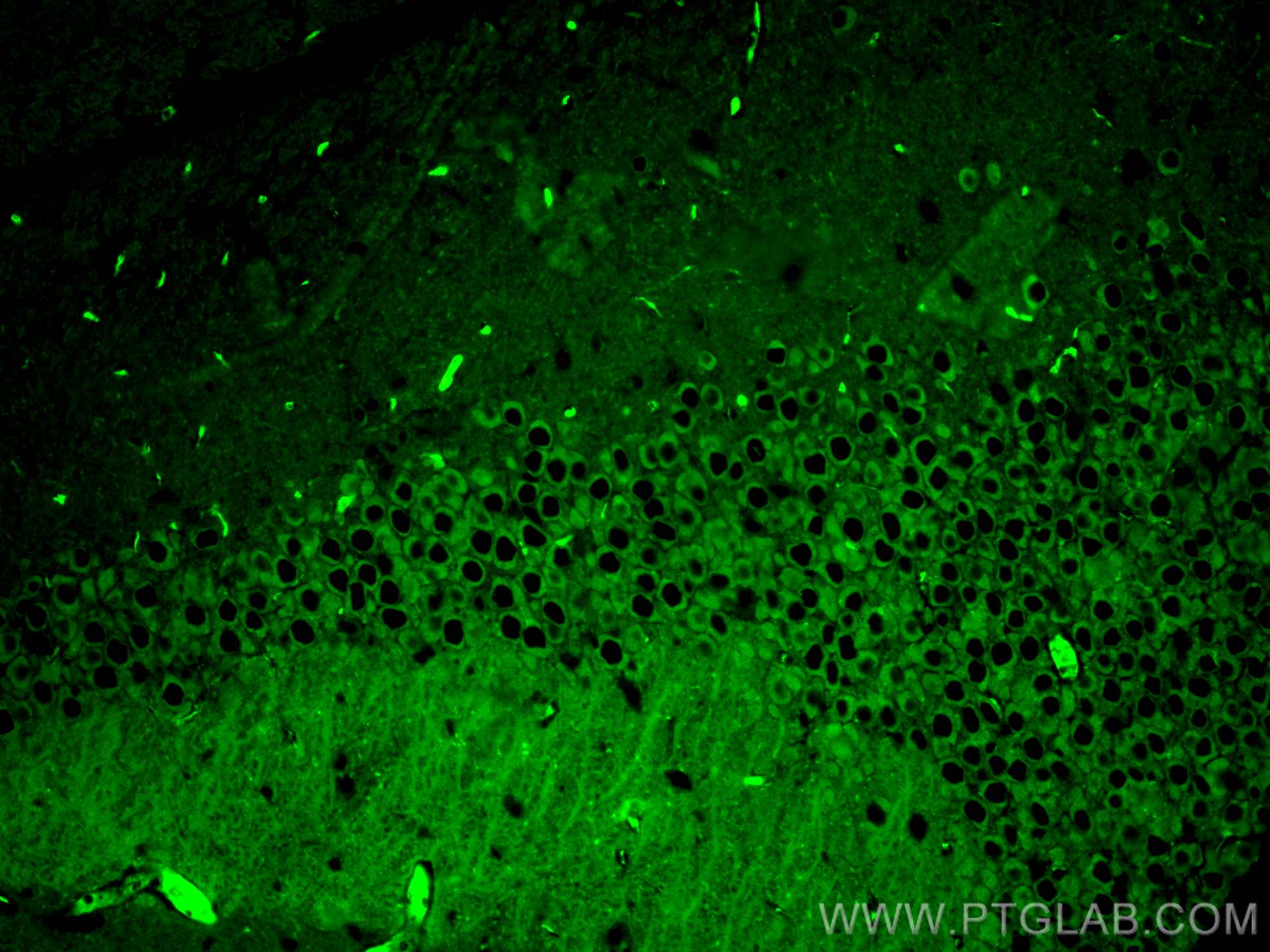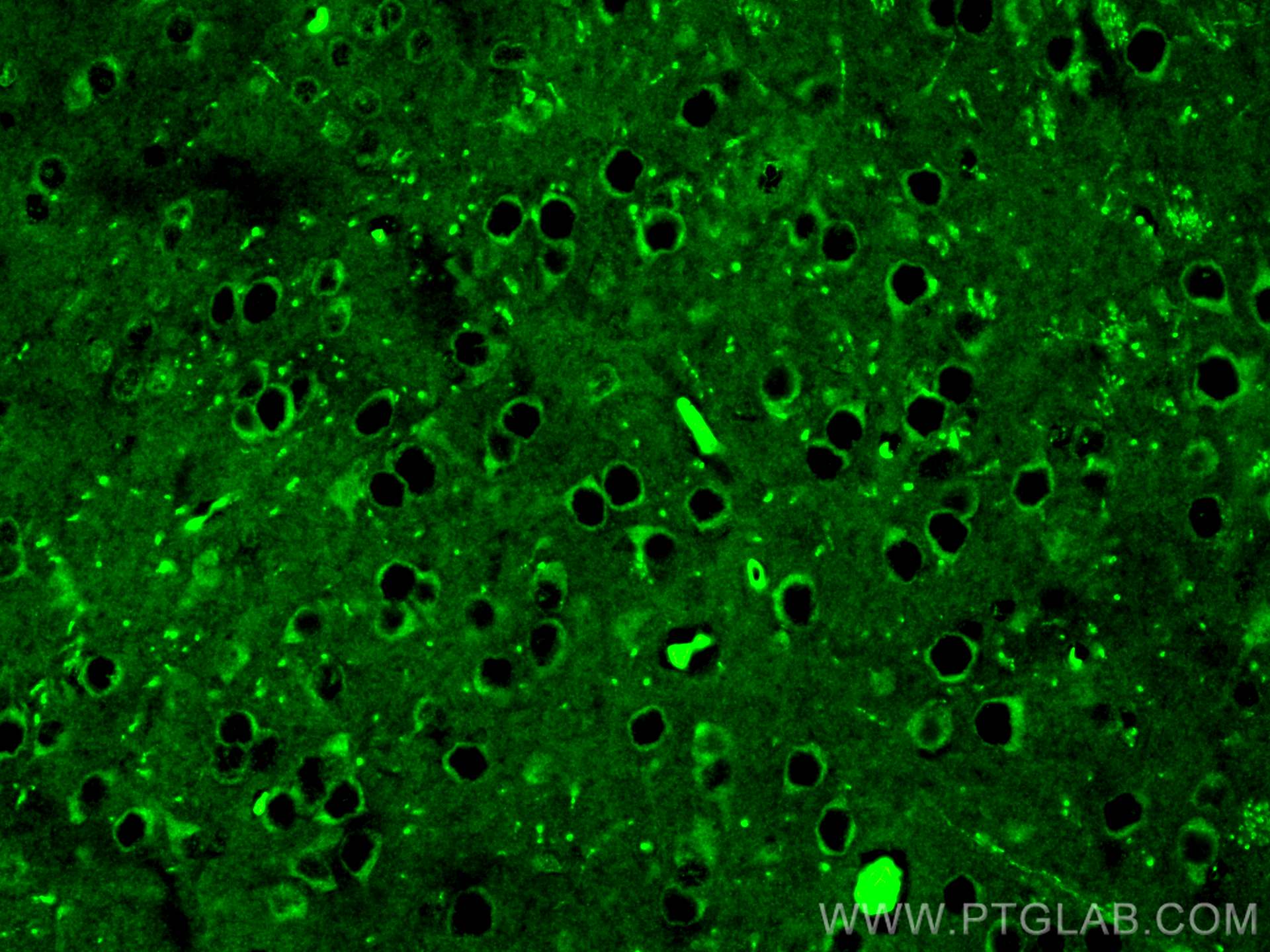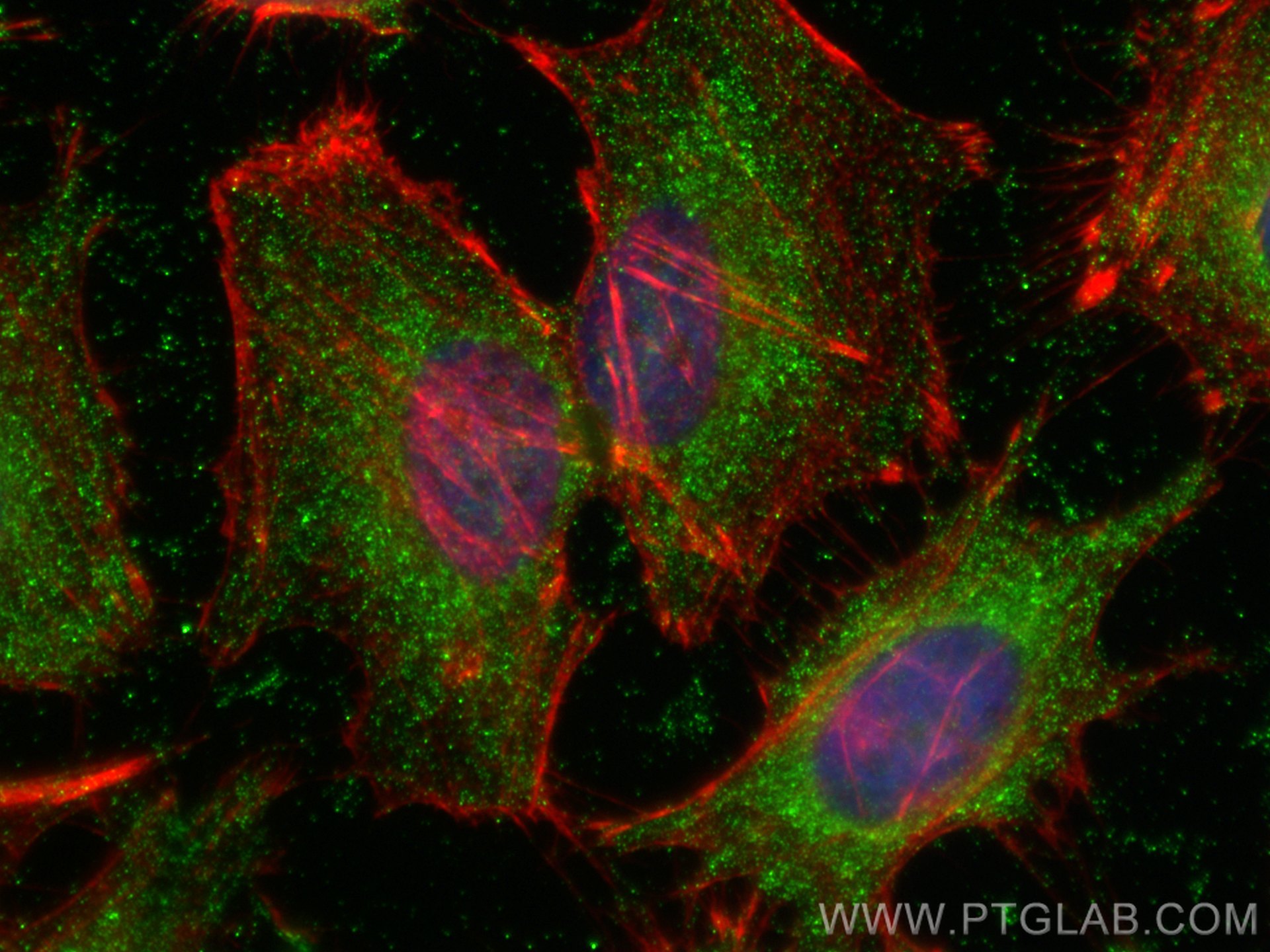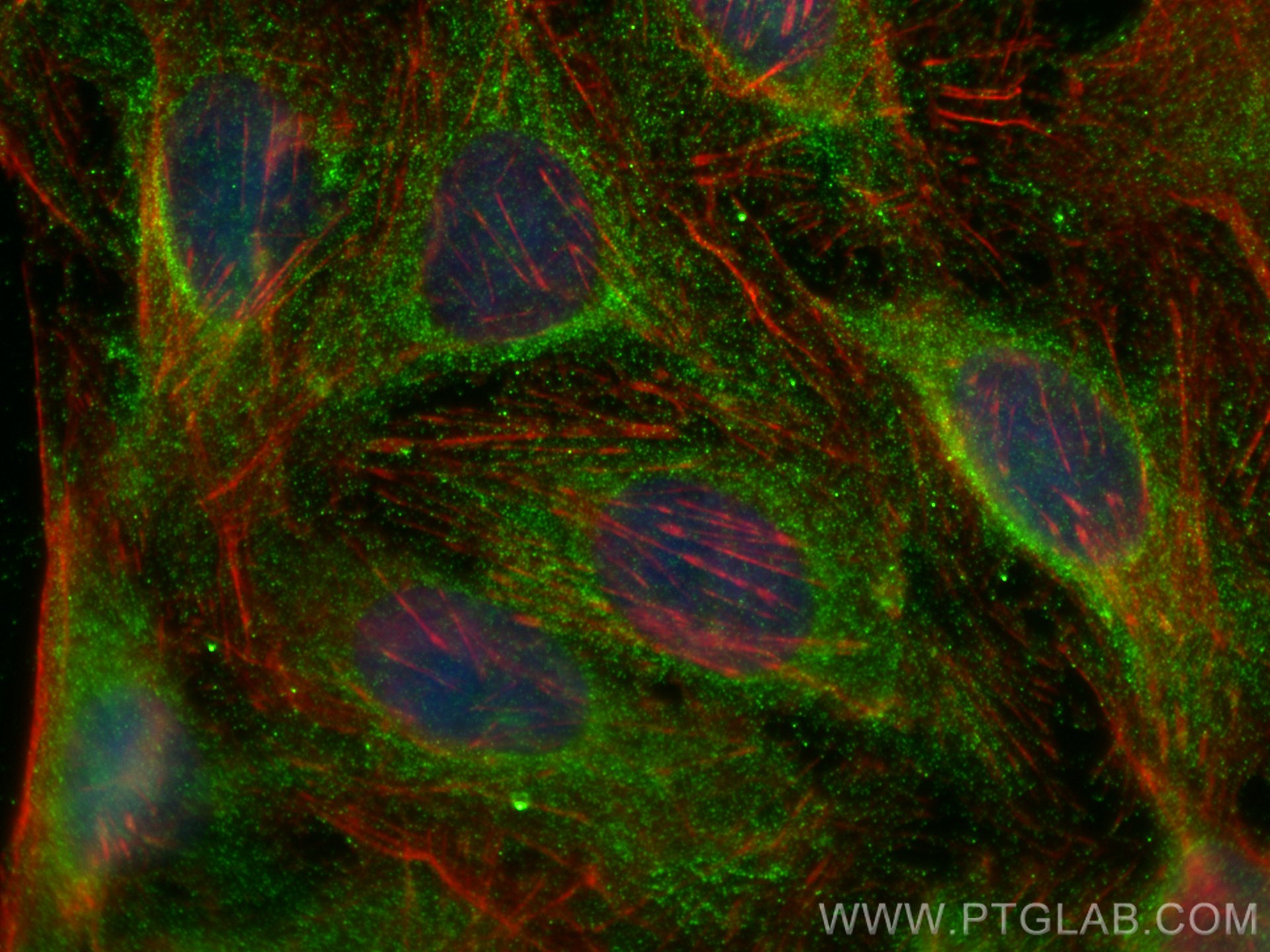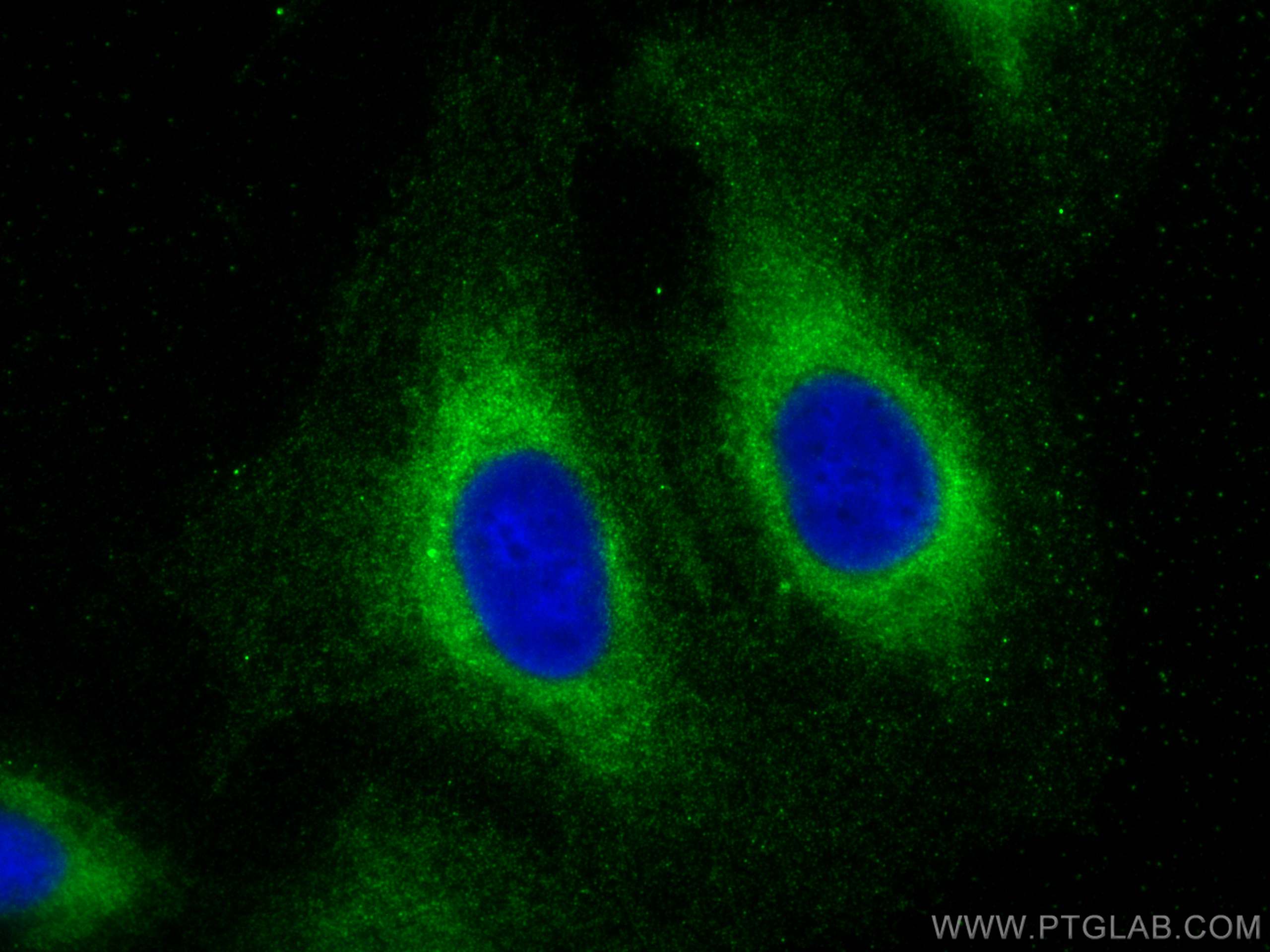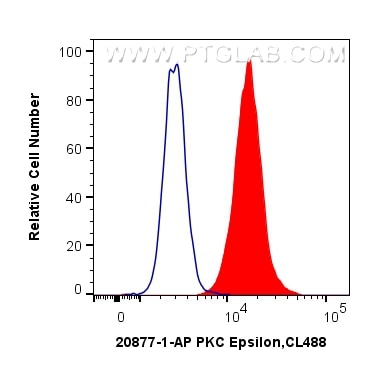- Featured Product
- KD/KO Validated
PKC Epsilon Polyklonaler Antikörper
PKC Epsilon Polyklonal Antikörper für WB, IHC, IF/ICC, IF-P, FC (Intra), IP, ELISA
Wirt / Isotyp
Kaninchen / IgG
Getestete Reaktivität
human, Maus, Ratte und mehr (1)
Anwendung
WB, IHC, IF/ICC, IF-P, FC (Intra), IP, ELISA
Konjugation
Unkonjugiert
Kat-Nr. : 20877-1-AP
Synonyme
Geprüfte Anwendungen
| Erfolgreiche Detektion in WB | Maushirngewebe, Rattenhirngewebe, SH-SY5Y-Zellen |
| Erfolgreiche IP | SH-SY5Y-Zellen |
| Erfolgreiche Detektion in IHC | Maushirngewebe, humanes Schilddrüsenkarzinomgewebe Hinweis: Antigendemaskierung mit TE-Puffer pH 9,0 empfohlen. (*) Wahlweise kann die Antigendemaskierung auch mit Citratpuffer pH 6,0 erfolgen. |
| Erfolgreiche Detektion in IF-P | Maushirngewebe |
| Erfolgreiche Detektion in IF/ICC | HeLa-Zellen, U2OS-Zellen |
| Erfolgreiche Detektion in FC (Intra) | Jurkat-Zellen |
Empfohlene Verdünnung
| Anwendung | Verdünnung |
|---|---|
| Western Blot (WB) | WB : 1:5000-1:50000 |
| Immunpräzipitation (IP) | IP : 0.5-4.0 ug for 1.0-3.0 mg of total protein lysate |
| Immunhistochemie (IHC) | IHC : 1:50-1:500 |
| Immunfluoreszenz (IF)-P | IF-P : 1:50-1:500 |
| Immunfluoreszenz (IF)/ICC | IF/ICC : 1:50-1:500 |
| Durchflusszytometrie (FC) (INTRA) | FC (INTRA) : 0.40 ug per 10^6 cells in a 100 µl suspension |
| It is recommended that this reagent should be titrated in each testing system to obtain optimal results. | |
| Sample-dependent, check data in validation data gallery | |
Veröffentlichte Anwendungen
| KD/KO | See 2 publications below |
| WB | See 20 publications below |
| IHC | See 1 publications below |
| IF | See 2 publications below |
| IP | See 1 publications below |
Produktinformation
20877-1-AP bindet in WB, IHC, IF/ICC, IF-P, FC (Intra), IP, ELISA PKC Epsilon und zeigt Reaktivität mit human, Maus, Ratten
| Getestete Reaktivität | human, Maus, Ratte |
| In Publikationen genannte Reaktivität | human, hamster, Maus, Ratte |
| Wirt / Isotyp | Kaninchen / IgG |
| Klonalität | Polyklonal |
| Typ | Antikörper |
| Immunogen | PKC Epsilon fusion protein Ag14976 |
| Vollständiger Name | protein kinase C, epsilon |
| Berechnetes Molekulargewicht | 737 aa, 84 kDa |
| Beobachtetes Molekulargewicht | 84 kDa |
| GenBank-Zugangsnummer | BC109033 |
| Gene symbol | PKC Epsilon |
| Gene ID (NCBI) | 5581 |
| Konjugation | Unkonjugiert |
| Form | Liquid |
| Reinigungsmethode | Antigen-Affinitätsreinigung |
| Lagerungspuffer | PBS with 0.02% sodium azide and 50% glycerol |
| Lagerungsbedingungen | Bei -20°C lagern. Nach dem Versand ein Jahr lang stabil Aliquotieren ist bei -20oC Lagerung nicht notwendig. 20ul Größen enthalten 0,1% BSA. |
Hintergrundinformationen
PKC Epsilon (Protein kinase C epsilon type) is also named as PKC-ε, PRKCE and PKCE. It belongs to the protein kinase superfamily, AGC Ser/Thr protein kinase family and PKC subfamily. PKC-ε, one of the novel isoforms, as a critical player in membrane mobilization during phagocytosis (PMID: 9069266). KC-ε is tethered to the Golgi through binding of its pseudosubstrate domain to phosphatidylinositol-4-phosphate (PI4P) (PMID: 28539432). PKC-ε traffics on microtubule-associated vesicles from the Golgi to the forming phagosome. As the majority of macrophage PKC-ε is cytosolic, and PKCs translocate from the cytosol to their sites of activity, it predicted that cytosolic PKC-ε concentrated at phagosomes to facilitate membrane addition (PMID: 34622926). Two PKC isozymes of the novel group, PKCε and PKCδ, have different and sometimes opposite effects. PKCε stimulates cell growth and differentiation while PKCδ is apoptotic (PMID: 21810427).
Protokolle
| PRODUKTSPEZIFISCHE PROTOKOLLE | |
|---|---|
| WB protocol for PKC Epsilon antibody 20877-1-AP | Protokoll herunterladen |
| IHC protocol for PKC Epsilon antibody 20877-1-AP | Protokoll herunterladenl |
| IF protocol for PKC Epsilon antibody 20877-1-AP | Protokoll herunterladen |
| IP protocol for PKC Epsilon antibody 20877-1-AP | Protokoll herunterladen |
| STANDARD-PROTOKOLLE | |
|---|---|
| Klicken Sie hier, um unsere Standardprotokolle anzuzeigen |
Publikationen
| Species | Application | Title |
|---|---|---|
Elife cAMP-EPAC-PKCε-RIM1α signaling regulates presynaptic long-term potentiation and motor learning | ||
Biochem Pharmacol Thromboxane A2-TP axis promotes adipose tissue macrophages M1 polarization leading to insulin resistance in obesity | ||
J Cell Mol Med Protein kinase C is involved in the neuroprotective effect of berberine against intrastriatal injection of quinolinic acid-induced biochemical alteration in mice. | ||
Fish Shellfish Immunol In vivo study of a novel protein kinase C that mediates immunocompetence and catecholamine biosynthesis in hemocytes of Litopenaeus vannamei by using its potential competitive inhibitor, bisindolylmaleimide I. | ||
Mol Biol Cell MiR-34a regulates blood-tumor barrier function by targeting protein kinase Cɛ. | ||
Oxid Med Cell Longev p66Shc Mediates Mitochondrial Dysfunction Dependent on PKC Activation in Airway Epithelial Cells Induced by Cigarette Smoke. |
